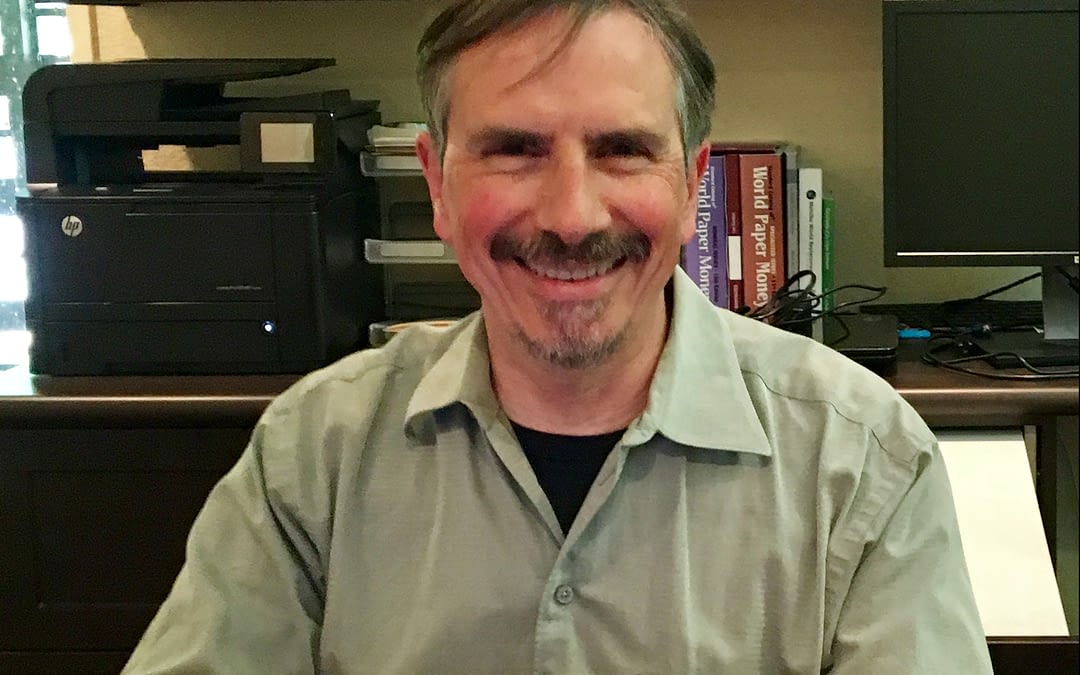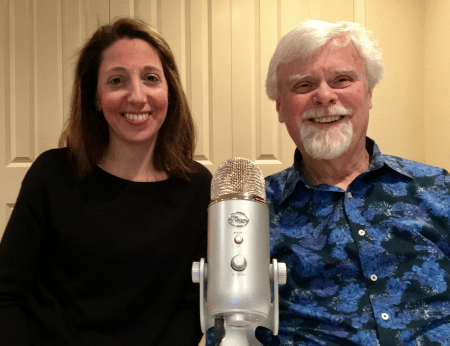Hi Folks!
Here’s the short version of today’s Ask David questions.
- Do depression and anxiety result from medical illnesses, like thyroid problems?
- Do we REALLY create our own interpersonal reality? What if you’re being raped? Are you saying that’s your fault? How can that be?
- I struggle with anxiety. Why is it a mistake to try to “calm down?”
- How do you deal with entitlement? I think my patients should do what I tell them to do! After all, I’m a highly trained professional!
- How do you deal with racism, sexism, and other societal barriers? What if the injustice is real and it isn’t “all in your head?”
And here are the longer versions. Fabrice and I hope you enjoy these thoughtful questions submitted by listeners like you!
1. Barbara asks: 1) How are hypothyroidism, depression, anxiety, and bipolar disorder related, and (2) how are heart disease, depression, and anxiety related?
2. Mark asks: I’m one of your most avid listeners to your podcasts. I’ve listened to most of Feeling Good Podcasts as well as the recordings of your Facebook live broadcasts with Jill. I absolutely love your content and extremely grateful for your insights and the material you put out for free. I’ve heard you say numerous times how in interpersonal relationship problems we create the poor behavior we see in the other.
At what point though, is a threshold crossed and you acknowledge the other in the relationship is creating problems? For example, if your client is being raped by their partner and is being threatened with violence if they dare leave, you wouldn’t say to your client you’re creating that kind of treatment from your partner.
Obviously the above is a very extreme example, but what if its scaled back in terms of severity of abuse, stopping short of physical attacks and threats? Where does a line in the sand get drawn where you acknowledge the client is not creating the problems themselves? I’d deeply appreciate your reply!
3. Angela asks: I was intrigued by your comment in your podcast #88 on Role-Playing Techniques that “trying to calm down is a big mistake. . . then your emotions become your enemies,” but then you said, “that’s a good topic for another podcast.” I hope you do a podcast on that topic!!! I’m eagerly waiting to hear more about that!
4. Julio asks: I’d like to share my experience. I am a therapist and I suffered from, and am still working on, feeling inadequate. I frequently questioned “am I good enough to be a therapist?” “How can I help others if I have issues of my own?”
After reading Feeling Good I realized I frequently jump to conclusions, engage in mind reading, and labeling whenever there is some uncertainty with my clients. At times I might even have blamed them when things didn’t go the way I thought they should go.
I believe I do that to protect my ego, and I might have developed some cognitive distortions related to entitlement such as
- “I’m a therapist, people are supposed to do what I say”
- “I worked too hard and too long and potential employers better give me what I deserve”
- “Because I practice evidence-based therapy, I’m better than 99% of all therapists.”
These entitled thoughts led me to become irate whenever someone didn’t act according to my expectations. I would vacillate between feeling angry and feeling depressed.
I guess when I initially emailed Fabrice I was confused as to how my entitlement develops, but now I’m realizing that it comes from the same distortions that can cause depression. I didn’t know that distortions could produce depression and entitlement.
I’m curious what you and Fabrice think about this. I thoroughly what you and Fabrice think about this. I thoroughly enjoy your podcast and often find myself re-listening to earlier episodes.
5. Holly asks: “ Burns: I have found tremendous value in your books and podcast. I have noticed that you discuss some emails/letters/etc. on your podcast and I have one I’d like to hear you discuss. What are your thoughts on dealing with racism, sexism, and other societal barriers?
For example, it is not uncommon for people with dominant identities (white, male, physically able) to tell women, people of color, or those with physical challenges that their issues are all in their minds and that if they thought differently, then they would have different outcomes.
I am an African-American woman and I don’t believe this (the statistics on access to education, employment, and justice all suggest otherwise). What are you saying (if anything) in your writing, practice about thoughts related to injustice?
Best, Holly
So there you have it! Great questions, and keep them coming!
By the way, one of our podcast fans has written an outstanding and thoughtful article asking if there is a causal link between Donald Trump’s Twitter tweets and anti-Muslim hate crimes for the prestigious journal, Scientific American. Here’s the link.
Thanks, David and Fabrice
Dr. Fabrice Nye currently practices in Redwood City, California and treats individuals throughout the world (but not across U.S. state lines) via teletherapy. You can reach him at fabrice@life.net. You can reach Dr. Burns at david@feelinggood.com. If you like our jingle music and would like to support the composer Brett Van Donsel, you may download it here.
* * *
THREE COOL UPCOMING WORKSHOPS FOR YOU
TEAM-CBT Methods for Anxiety Disorders–
Step-by-Step Training for Therapists
by David D. Burns, MD and Jill Levitt, PhD
Dr. Jill Levitt and I are offering what I think will be an outstanding workshop on the treatment of anxiety disorders on Sunday, May 19, 2019. Our Sunday workshops are tremendously fun, so consider attending if you are interested.
The last Sunday workshop in February sold out quickly so register soon if you are interested. You can join in Palo Alto in person or online from anywhere in the world.
THERE WILL BE MANY EXPERT TRAINERS TO GUIDE THE ONLINE PARTICIPANTS DURING THE SMALL GROUP EXERCISES
WHEN: May 19, 2019, 8:30 am – 4:30 pm PST
(11:30 am-7:30 pm EST)
WHERE: Join us live online or in person at the Creekside Inn, Palo Alto, CA.
HOW MUCH DOES IT COST? $135,
WILL I GET CE CREDITS? YES! 7 CE hours available
WILL I GET CREDIT IN THE TEAM LICENSURE PROGRAM? YES!
Completion of this workshop also counts towards TEAM-CBT Level 1, 2 or 3 Certification
WHO CAN ATTEND? Therapists of all levels are welcome
CAN I REGISTER IF I’M NOT A THERAPIST? Although the workshop is geared for therapists, it will be taught in a clear and basic way that anyone can benefit from.
WILL I HAVE FUN? Yes!
WILL I HAVE GET TO HANG OUT WITH SOME COOL COLLEAGUES? Yes!
WILL I GET AN AWESOME FREE BREAKFAST AND LUNCH? Yes!
You will love this lively, amusing, and immensely useful day of training with Drs. Burns, Levitt and the Feeling Good Institute Staff. The trainers will use a combination of didactic teaching, live demonstrations, video, and breakout group practice to enhance skill-building.
REGISTER / LEARN MORE
Act fast if you want to attend!
* * *
And there will be two awesome summer intensives for you this year!
July 15 – 18, 2019
Calgary four-day intensive
Sponsored by Jack Hirose & Assoc.
July 29 – August 1, 2019
South San Francisco four-day intensive
Sponsored by Praxis



